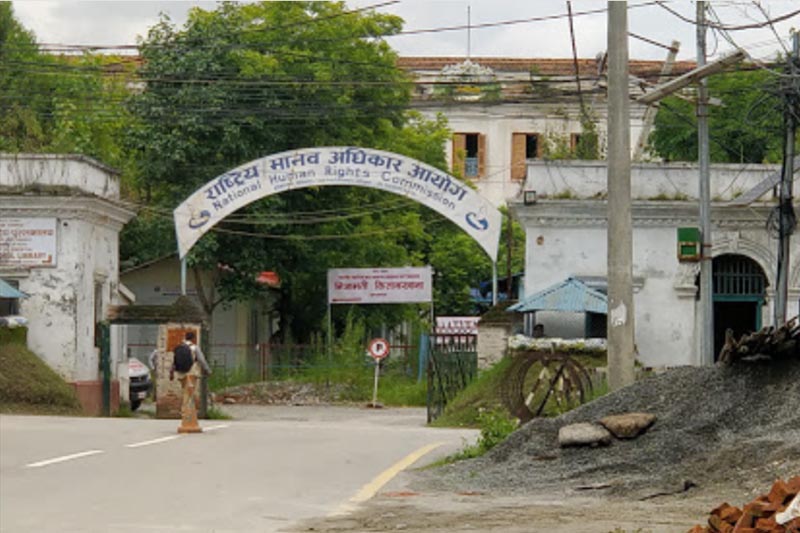Justice still eludes conflict victims: NHRC
Kathmandu, November 20
The National Human Rights Commission today said that civilians, who fell victims to the atrocities of both warring parties during the Maoist insurgency, were yet to see justice due to failure on the part of the government to initiate action against the perpetrators of gross rights violations.
“The NHRC reiterates its stance that justice should be delivered to victims of conflict. Any decision or action that may harm the sensitivity of the victims will never be acceptable. The rights body will continue to play its role to ensure the rights of victims,” read a press note issued by the NHRC 13 years after the Comprehensive Peace Accord was signed.
The decade-long armed conflict had formally ended with the singing of CPA on November 21, 2006. During the armed conflict, the country had witnessed incidents of serious violation of human rights such as killing, incapacitation, torture and inhuman and degradable behaviour, assault, enforced disappearance, sexual abuse, abduction, intimidation, enforced displacement, confiscation of properties and damage, use of children in armed conflict as child soldiers and forceful involvement of persons in armed conflict against their will.
The rights body warned that the culture of impunity had been institutionalised in the country as its recommendations to the government to take legal action against those involved in incidents of human rights violation during the conflict period were not duly implemented. The NHRC had made 810 recommendations to the government for necessary action. Of the recommendations, 12.5 per cent were fully implemented while 48.3 per cent were partially implemented. Similarly, 39.2 per cent of recommendations are said to be under consideration.
The fully implemented recommendations are related to providing compensation to conflict victims. The recommendations for legal action against the perpetrators of human rights violations have yet to be implemented. Even after the CPA, there was loss of lives due to use of excessive force by security agencies during various political movements. The government has not been able to bring to book the guilty in such incidents.
The crime graph is rising while respect and protection of human rights has worsened, according to the NHRC.
Though some of the mandates assigned to the government have been fulfilled, the issues of human rights violations associated with armed conflict have yet to be addressed. The government’s failure to make public the status of forcefully disappeared persons and deliver justice to the kin of persons killed during the conflict era is a serious challenge for implementing the CPA. Lack of records of cases related to sexual violence and torture are another matter of concern. This clearly shows that the CPA is awaiting full implementation, it added.
Case Number 9.4 of CPA had mandated the responsibility of monitoring implementation of the agreement signed by the warring parties (government and rebel force) to the NHRC.
The NHRC also warned that the growing dissatisfaction of conflict victims with the two commissions formed by the government for transitional justice was not a good sign. The commissions have registered around 66,000 complaints from victims of the conflict era.






